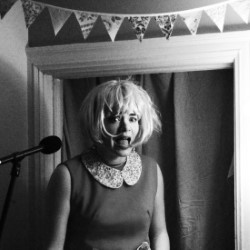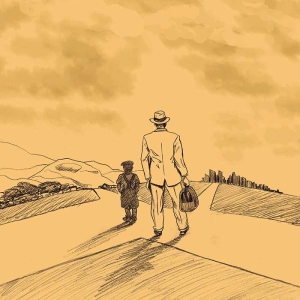 This review was originally written for The Reviews Hub: http://www.thereviewshub.com
This review was originally written for The Reviews Hub: http://www.thereviewshub.com
In his distinguished career, Kenneth Branagh has not strayed for too long from paths trodden by Laurence Olivier before him, perhaps making it inevitable that he would get round one day to Olivier’s most famous contemporary theatre role, Archie Rice in John Osborne’s The Entertainer.
The play first appeared at London’s Royal Court Court Theatre in 1957, the year after Osborne’s Look Back in Anger had rocked the establishment with the rants of “angry young man” Jimmy Porter, a role revived on the London stage in 1989 by Branagh. Both plays emerged from a post-war Britain of austerity and social change, but, although Rob Ashford’s new production makes no attempt to update it, The Entertainer can be seen to be built on fewer themes that are specific to its own era and, as such, it is the richer and more multi-layered of the two. Every generation witnesses change and the powerful image of a performer clinging to the stage long after his audience has begun to depart still resonates.
It is 1956 and British Music Hall is all but dead, a metaphor perhaps used by Osborne to highlight a decaying class structure and a crumbling empire. Billy Rice (Gawn Grainger), now an elderly, racist curmudgeon, has retired from the stage, but his son, Archie, still treads the boards in places such as the often-mentioned West Hartlepool, living a shambolic life and boasting that he has not paid income tax since 1936. When Archie appears first, he is tap-dancing inside a beam from a single spotlight behind him, in effect showing us a man who has cut himself off from reality existing only inside a showbiz cocoon.
Branagh strikes a very precise balance in performing Archie’s song, dance and joke routines. He is just about good enough to suggest that the character could have had a passable act in his heyday and awful enough to make a full house in the Garrick seem out of place. Archie’s signature song, Why Should I Care?, also reflects his attitude to family life. He tells his daughter Jean (Sophie McShera) that he is “dead behind the eyes”, unfeeling, but, when tragedy strikes the family, a subtle change in Branagh’s demeanour and a suppressed shriek reveal that callousness is just another part of his act.
Accepting his own fallibilities, resigning himself to doing nothing about them and resorting to performing to his family when he should be attending to their concerns, Archie is not an “angry middle-aged man”. However, Jimmy Porter’s spirit is revived in his son Frank, played with earnest conviction by Jonah Hauer-King. Frank has served a prison sentence for refusing conscription and now he looks on his family from the perspective of an outsider and gives voice to Osborne’s cynical views on British life and his sarcastic patriotism.
Archie’s second wife Phoebe is step-mother to Jean and mother to Frank and another son, Mick (unseen) who is a willing conscript, serving in the army in the Suez conflict. Greta Scacchi brings out Phoebe’s vulnerability touchingly and shows us the pain of a woman who wants little more than to be treated with dignity and respect, but finds herself neglected and always likely to lose everything that she values because of her husband’s philandering with younger women.
Christopher Oram’s set design overemphasises the play’s theatrical context, placing a second ornate proscenium arch at the rear of the stage and electronic boards at the sides, numbering scenes 1 – 13 as if they are turns in a variety show, This provides an unnecessary distraction, but, overall, Ashford gives us a worthy revival of Osborne’s cutting and often sour examination of the links between show business and real life.
Performance date: 30 August 2016
Photo: Johan Persson











